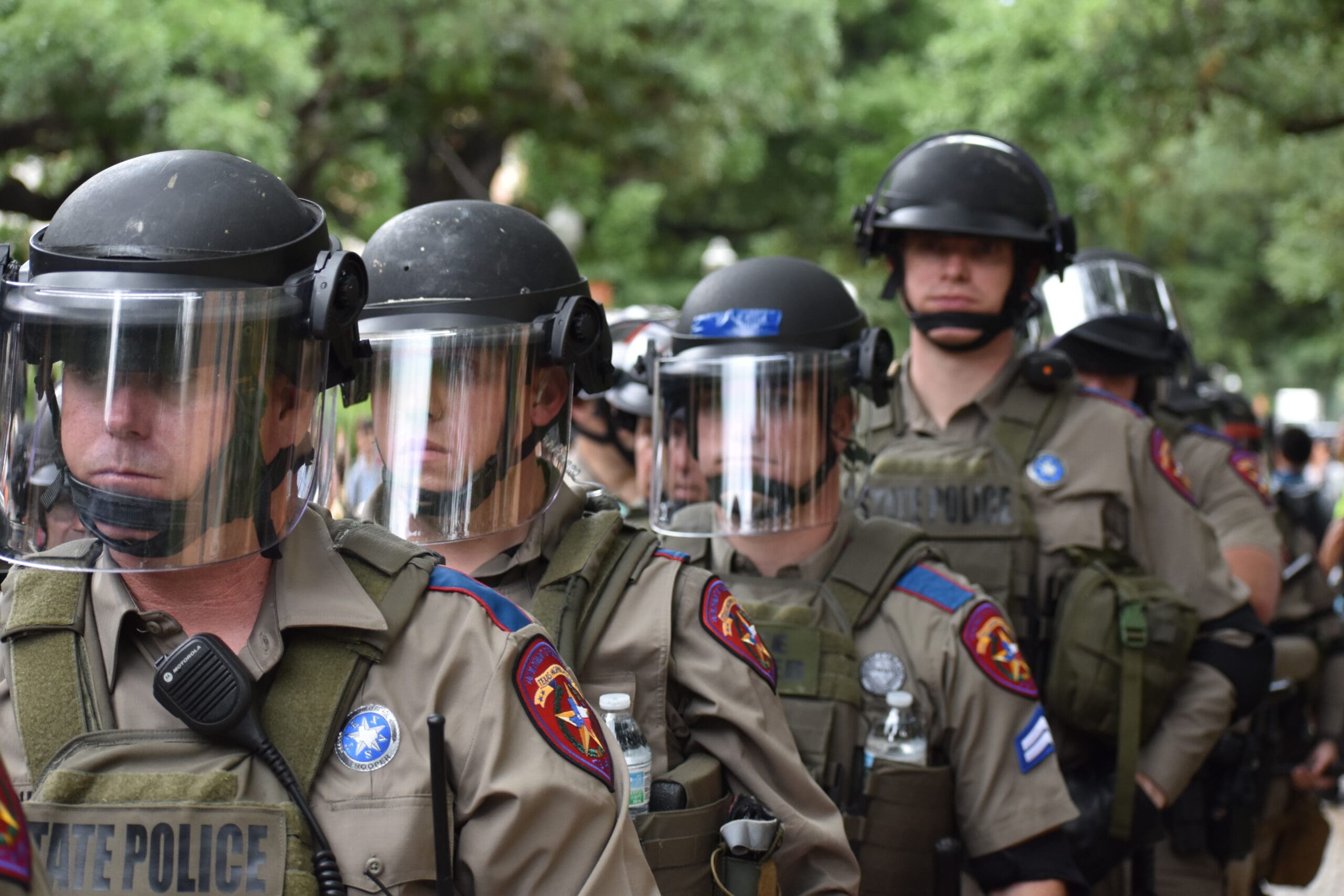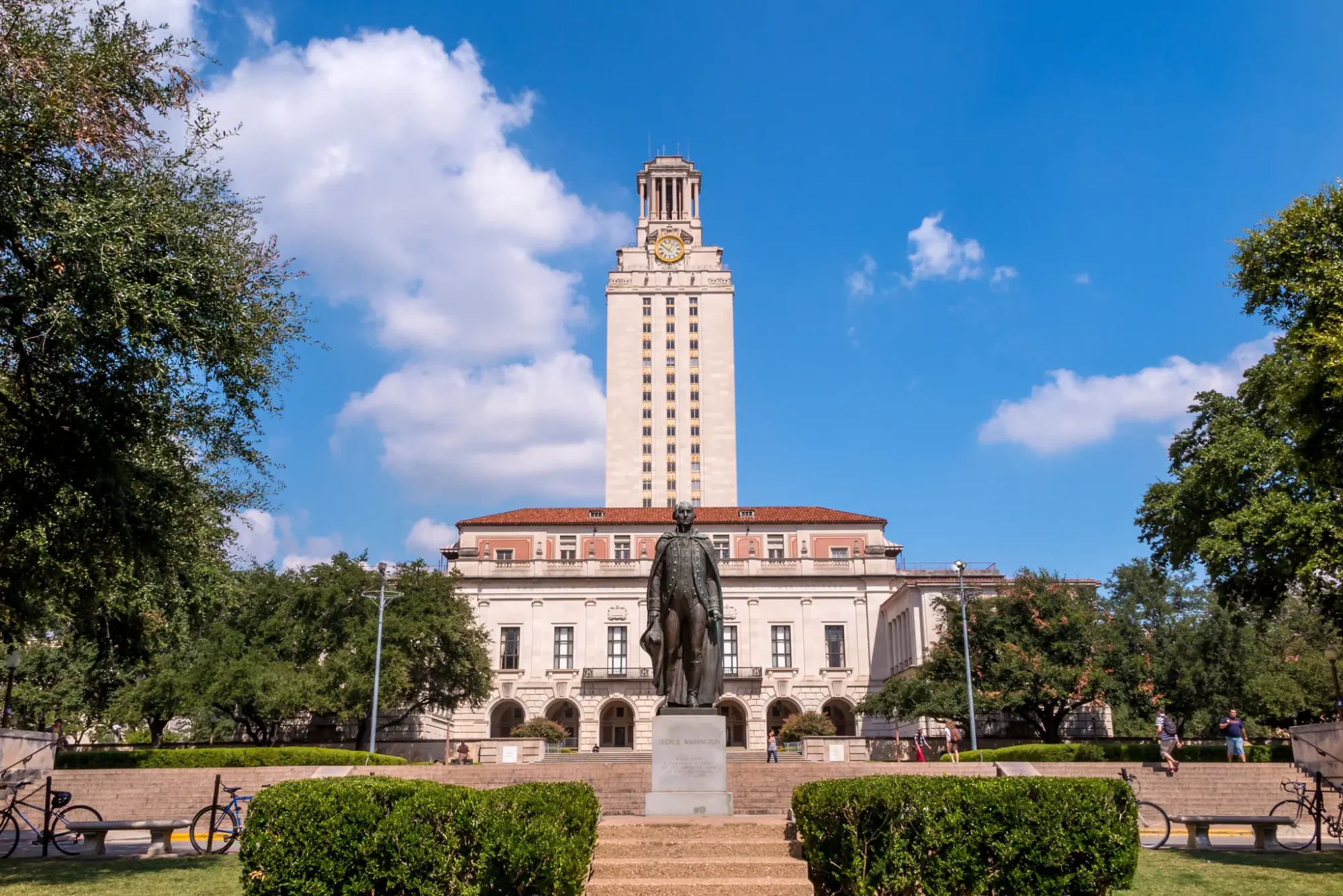Faculty throughout the University of Texas at Austin are pressing UT President Jay Hartzell to support pro-Palestine speech.
In an open letter to Hartzell, faculty wrote, “We are deeply concerned about the repression of free speech and the safety of students and instructors on our campus, which is becoming increasingly hostile to anyone demonstrating support for the Palestinian people who are facing mass displacement and genocide.”
They referenced Hartzell’s October 13 message to students and faculty promising, “We, like all UT institutions, will protect everyone’s right to free speech. And to be clear, we have zero tolerance for violence, vandalism, or any activities that threaten other people or the safety of our campus.”
At issue for the faculty and the impetus for the letter was the suspension of two teaching assistants “in retaliation” for expressing support for Palestine to students and acknowledging the “‘mental health implications’ of the violence in Gaza and the University’s silence on student suffering, and directing them to mental health resources on and off campus.”
However, the university has defended its suspension of the pair, saying they “unprofessionally misused the official University classroom communication platform to send a personal political message to the students in a course.”
Nevertheless, the faculty said the “suspension is part of a pattern of silencing and erasure of pro-Palestinian students on our campus.”
Notably, the letter did not reference the October 7 attacks where Hamas murdered 1,200 people and kidnapped 240 others, prompting Israel’s war on Hamas.
However, the faculty letter—signed by more than 100 UT employees—included three demands, echoing the student-led Palestine Solidarity Committee and requesting that the university do the following:
- Reinstate the teaching assistants and publicly apologize to them.
- “Express equal support for Palestinian and Jewish members of our community who are profoundly suffering, and provide material support to safeguard Palestinian, Arab, Muslim, and all students who have been made to feel unsafe and unwelcome on our campus.”
- Establish a policy halting retaliatory actions in response to instructors’ and students’ free speech.
The fourth demand of the Palestine Solidarity Committee—not mentioned in the faculty’s letter—is for a university response to the “Student Statement of Solidarity with Palestine.”
This student statement in “full support of Palestinian liberation” says, “Israel’s state-sanctioned violence created the conditions that makes resistance necessary, which is why the threat of militarism and settler colonialism unites us, as marginalized students, in the fight for liberation.”
The students called for a statement from university officials that specifically condemns the “violent genocide of Palestinians in Gaza by Israel” and “acknowledges the pain of the Palestinian, Arab, and Muslim communities.”
The statement is signed by a number of student organizations, including, but not limited to, the Queer Trans Black Indigenous People of Color Agency, Gender Violence Law Caucus, Students for Revolution, Getting Radical in the South, Students Fighting Climate Change, UT Young Democratic Socialists of America, and Women in Medicine.




